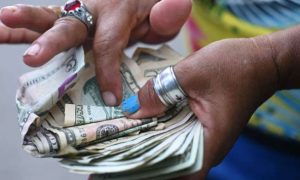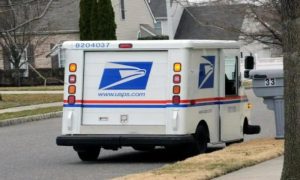Find a Qualified Financial Advisor
Finding a financial advisor doesn’t have to be hard. SmartAsset’s free tool matches you with up to three fiduciary financial advisors that serve your area in minutes. Each advisor has been vetted by SmartAsset and is held to a fiduciary standard to act in your best interests. Start your search now.
The offers and details on this page may have updated or changed since the time of publication. See our article on Business Insider for current information.
Also Read– Social Security Will Undergo 3 Changes In 2025. How Will It Affect Retirees?
Affiliate links for the products on this page are from partners that compensate us and terms apply to offers listed (see our advertiser disclosure with our list of partners for more details). However, our opinions are our own. See how we rate banking products to write unbiased product reviews.

- Banks may close an account due to inactivity, excessive overdraft fees, or suspected fraud.
- Banks do not have to warn customers in advance of account closures.
- You won’t be able to reopen the account but can file a formal complaint with your bank’s regulating body.
Involuntary bank account closures often occur when a financial institution detects unusual activity in a bank account — or there’s no activity at all. Unfortunately, closures can happen without warning.
If a bank has closed your account, here are steps to take to resolve potential issues, recover your money, and avoid this situation in the future.
Also Read– Money market account vs. checking account: What’s the difference?
Reasons for account closure
A bank may decide to close your savings or checking account under any of the following circumstances:
- Your account has been inactive for a long time. According to the Office of the Comptroller, financial institutions might consider a bank account abandoned if it hasn’t been used for three to five years. As a result, your account may be closed and the bank will ask where to deposit your balance.
- Your account has repeated overdrafts or a negative balance. If your account has incurred excessive overdraft fees resulting in a negative balance, a bank may decide to close your account.
- A bank suspects fraud. A bank may think your bank account has been hacked, or is being used knowingly for fraudulent activities, if there are a string of large purchases, cash deposits, or withdrawals. Banks use sophisticated systems to detect fraud and tend to err on the side of caution to intercept possible illegal activity.
Immediate steps to take
Below, are two immediate steps to take if handling an unexpected bank account closure.
Contact the bank for specific reasons
A bank can close your account without your permission. If you notice your bank account has been closed or you received a message from the bank notifying you of a closure, follow up with a call to find out the cause.
Also Read– This Is How Credit Card Companies Make Their Money
Secure your funds
If you have a negative balance in the account, ask how you can pay it off. If you don’t settle it, the unpaid fees may be reported to a collection agency and negatively impact your credit score.
If you have a positive balance, ask the bank how you can receive the funds safely and quickly. You may get a cashier’s check and be sent on your way.
Be sure to redirect your paychecks to a different bank account and stop any recurring deposits or online bill payments connected to the closed account.
How to address the closure
Unfortunately, an involuntary bank account closure can affect you when you open accounts in the future.
Banks review your checking account history when you apply to open a bank account. If a past account had significant unpaid fees, consumer reporting companies like ChexSystems can pass this information on to new financial institutions where you might not be able to open a new account.
According to the Consumer Financial Protection Bureau (CFPB), this may affect you for up to seven years after your bank account is closed.
If your account was closed due to identity theft or another circumstance that wasn’t your fault, you’ll need to resolve this issue so that it doesn’t affect future accounts. Review your checking account history by reaching out to ChexSystems for a report, and follow the instructions to dispute any errors.
If you’re unable to resolve the issue, you can send a formal complaint to the organization that regulates your bank.
Also Read- ‘I will not subject my family to more pain:’ Hunter Biden pleads guilty to tax charges
Preventing future account closures
Once a bank account is closed, it usually can’t be reopened. You’ll have to open a new bank account with your institution or bank somewhere else.
Some banks have second chance bank accounts, which allow you to open a bank account regardless of whether you have a negative banking history. Second chance banking can be a way to rebuild banking relationships after a closure.
When you open a new bank account, monitor it to ensure you don’t wind up in the same situation again. Here are a few tips to maintain your new bank account so that it isn’t closed by a financial institution.
- Find a new account that you’ll qualify for. If your account was closed because you had to pay significant overdraft fees, you still may be able to open a new account. Low-risk bank accounts, prepaid debit cards, and free overdraft protection are worth exploring.
- Add direct deposit to your account. To prevent inactivity in your account, you might want to consider adding direct deposit to your account so that money automatically goes into your account every month.
- Utilize a budget app that will link to your bank account. If you like getting a bigger picture about how you use your money, one of the best budgeting apps might help with monitoring your account.
- Bank at more than one institution. Consider keeping some of your savings at a different bank to reduce the impact to your daily life if one account is suddenly closed.
Involuntary bank account closure FAQs
Why would a bank close my account?
Involuntary bank account closures are often due to inactivity, suspected fraud, excessive overdrafts, or failure to meet minimum balance requirements.
What should I do immediately after my bank closes my account?
Contact the bank to find out the cause of the account closure and how to receive your balance. If you owe the bank money, pay it as soon as you can; unpaid balances may be reported to a collection agency.
Can I dispute the bank’s decision to close my account?
Banks can close an account without getting permission or notifying the customer. If you believe the account was wrongfully closed, you can file a formal complaint with the Office of the Comptroller.
How can I find a new banking institution after my account is closed?
If your account was closed due to inactivity, you may be able to reopen it. If you’re looking for a new bank, pay attention to fees, account requirements, and accessibility.
What steps can I take to prevent future account closures?
Keep your account active by setting up direct deposit, avoid repeated overdrafts, and notify your bank of large or unusual upcoming purchases, especially those involving cash.











































